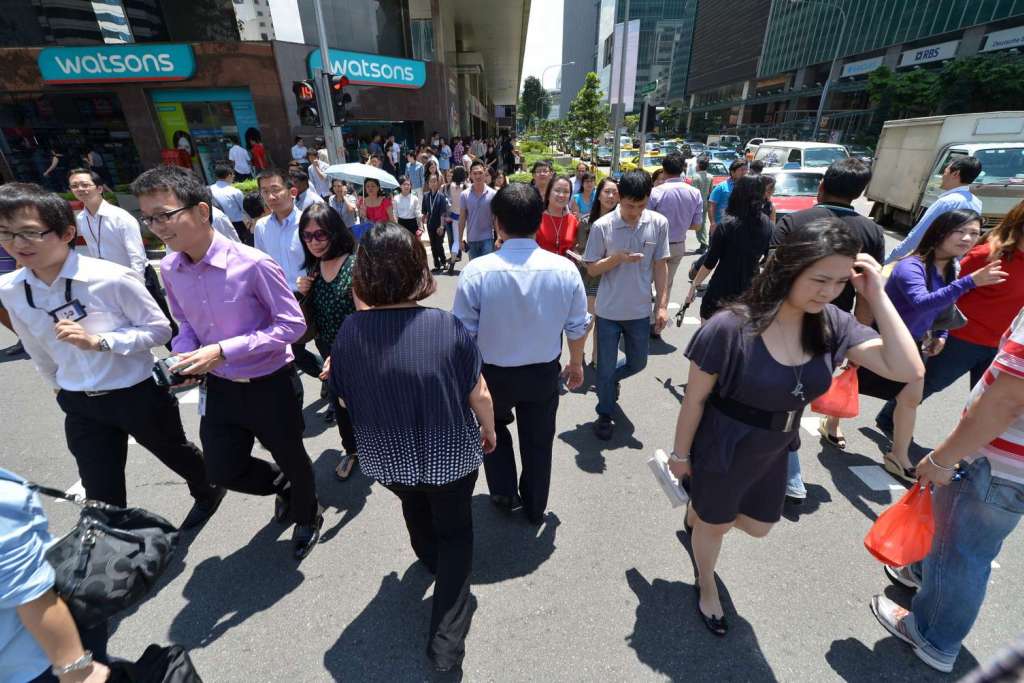Singaporeans earned higher incomes last year and unemployment was kept low, despite the economic slowdown.
But productivity growth remained low, especially in domestically oriented sectors such as construction, retail and food services.
This was the picture painted in the Singapore Public Sector Outcomes Review that takes stock of how Singapore has fared in key areas of national interest, such as the economy, housing and healthcare.
The biennial report, released by the Ministry of Finance (MOF) yesterday, said that the lives of Singaporeans have improved amid the challenging environment.
It added that a key focus of the Government in the last two years has been to “provide opportunities for all by renewing the economy, transforming industries and enhancing lifelong employability”.
On this front, the incomes of Singaporeans went up, with those in the 20th percentile and median income levels seeing their wages grow by 3 per cent per year since 2010.

The unemployment rate has also remained stable at 3 per cent or lower in the last five years, making it among the lowest in the world, said the 66-page report.
But productivity, which is key to maintaining sustainable growth, has been almost flat and grew by 1.3 per cent per year between 2010 and last year. This was due to the uncertain and sluggish global economic environment and domestically oriented sectors being less productive, said the report.
Spring Singapore deputy chief executive Ted Tan, in an MOF statement yesterday, said innovation and productivity will be key for Singapore’s future economic growth and competitiveness.
Last year, Spring supported 22,000 projects by small and medium-sized enterprises to innovate, double the number of companies it supported the year before.
These efforts are expected to create about 19,000 new jobs and $6.9 billion of added value over the next three years.
In the area of housing, there are also signs that public flats have become more affordable for first-time home buyers, the report said.
It cited the fall in the debt-servicing ratio of new four-room Housing Board flats in non-mature estates to 22 per cent last year, from 25 per cent in 2014.
It added that this was due to the recent policy changes, such as the raising of the income ceilings for those who want to buy resale and new HDB flats, allowing more to qualify for grants.
On healthcare, the report said it has remained affordable for the elderly with schemes such as the Pioneer Generation Package (PGP). Nine in 10 pioneers received PGP subsidies at subsidised specialist outpatient clinics, polyclinics or Community Health Assist Scheme clinics between September 2014 and December last year.
Meanwhile, the report also noted the progress made on some of the pressing issues in the public transportation system, but said there was “room for improvement” in boosting rail reliability.
MRT trains are travelling longer distances before encountering delays. Last year, trains clocked 133,000 train-km between disruptions – delays of more than five minutes. This was up from 93,000 train-km in 2014.
But the number of train delays lasting more than 30 minutes doubled to 14 last year, compared with seven in 2013.
While the overall law and order situation remained under control, there was an increase of about 3 per cent in the overall crime rate per 100,000 people last year, compared with the year before.
This was largely due to the rising number of online commercial crimes, said the report.
Head of the civil service Peter Ong said the report was a good opportunity for the public service to “look back on our performance… as we chart our directions for the future”.
He added: “In the next chapter of our Singapore story, we will work towards building a future-ready public service that will partner each and every Singaporean to build a better home for all.”

This article was first published on Dec 10, 2016.
Get a copy of The Straits Times or go to straitstimes.com for more stories.






